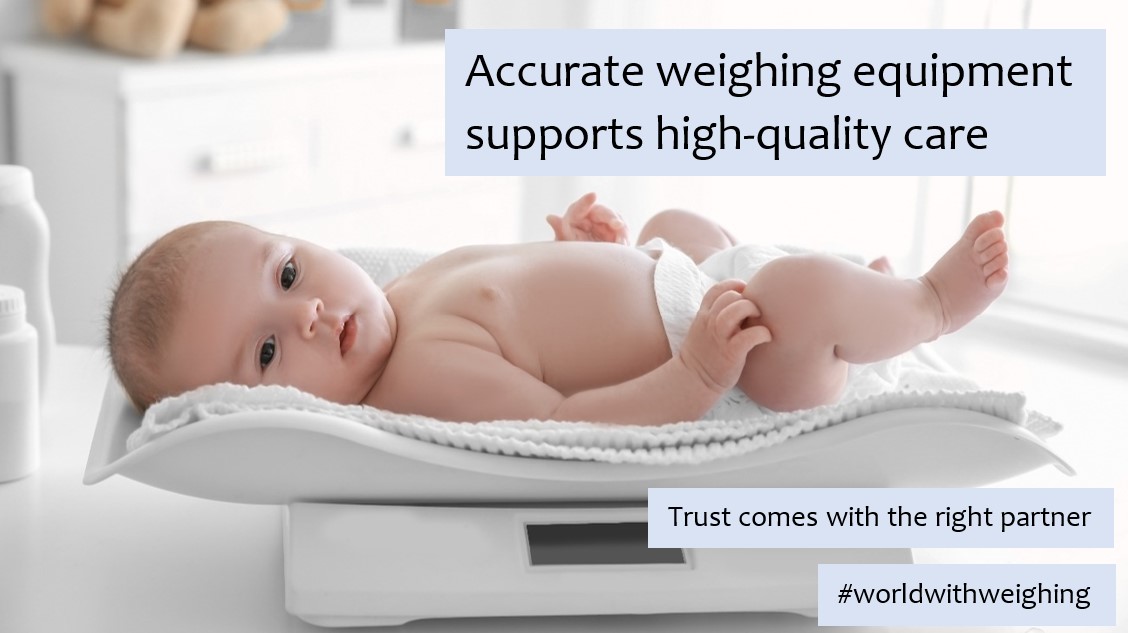Brussels, 20 May 2021: CECIP, the European weighing industry association, recently launched its ‘World with Weighing’ campaign that aims at making consumers and users of weighing instruments aware about the importance of quality weighing. CECIP President Nick Parsons is being interviewed today, at World Metrology Day, to explain the idea behind the campaign. CECIP brings together various players within the weighing industry from large manufacturers to small service providers. It acts as the voice of the European weighing industry in the process of developing legal metrology requirements and in this case making the world aware about the importance of weighing.
Why has CECIP organised this campaign?
Accurate and reliable weighing is important, but it is often taken for granted. We all assume that we get what we pay for when it comes to the weighed products we buy or that the quality of all products is automatically assured by the production process. However, this depends on the quality of the weighing instruments you or your suppliers are using. Without the right weighing instruments many things can go wrong, and this will be highlighted in the campaign.
So, you’re saying that the world cannot do without weighing
At least, the world wouldn’t be as it is today without quality weighing. It starts from the moment you’re born - being weighed is one of the first thing that happens to you. Having reliable scales to weigh you in those first few days and as you grow is critical. Later in life, almost all products (or parts of the products) you eat or use every day are weighed at least once in its life-cycle. These can be obvious examples such as the food you eat, but the quality of many other products such as the paint on your walls or your toothpaste also depends on weighing instruments. If unreliable scales are used, you might not get your money’s worth or the quality of a product you receive is not the same.
This makes it clear why it is important, but what does this mean for the people buying the scales?
The first step is to be aware of why quality weighing instruments should be used. There are quality differences between scales, and this can impact your business directly. For example, if the scale in a retail shop indicates only 1% less than the value, this means a 1% reduction of the profit margin of the weighed products. This can be the difference between making a profit or a loss. For state-of-the-art research, accurate scales are needed to develop the medicine we need.
What can companies do to make sure they buy the right scale?
It starts with buying scales that are compliant with legislation and if needed can be used for commercial transactions or research. Scales for commercial transactions have to fulfil high requirements for accurateness and reliability. Compliance with these quality requirements must be made visible on the scale by means of appropriate markings, so not all scales sold on the EU market meet these requirements. After establishing that the scales are compliant and fit for purpose, a decision needs to be made on the accuracy, reliability, and quality of the scale depending on the usage. Often the higher the quality of the scale, the more reliable the results will be for longer.
So, the quality can be assured by buying the right scale?
Yes, but this is only the beginning. Scales can become less accurate over time, particularly in harsh conditions. Wear and tear does have an impact and proper maintenance and regular verifications are essential to guarantee the reliability in the long term. Therefore, most countries have mandatory requirements on periodic reverifications. Good maintenance can avoid any problems during those periodic tests.
Ok, this means a customer should pay attention to the quality of the scale and ensure proper maintenance?
Indeed, maintaining the weighing instrument is critical for its longer term accuracy. At the same time, the weighing industry is presenting continuously innovative weighing solutions that create new opportunities. For many businesses it is interesting to take these possibilities into account as well when deciding on the purchase of weighing instruments.
Innovations? Doesn’t a scale just weigh a product as it did a 1,000 years ago?
The principle is still the same, but new technology is evolving all the time, particularly digitalisation is creating new opportunity for businesses. Connected scales bring a range new of solutions and services. For example, further personalisation or better inventory management is made possible by innovative weighing instruments. Another example is improved efficiency when products or vehicles can be weighed faster with modern weighing instruments.
Interesting, so there are several factors that should impact which weighing instrument is optimal for each business. How would you sum up your advice for someone that is in the process of buying a weighing instrument?
First, the scale needs to be compliant with legislation. Secondly, buy quality because this will have an impact on reliability, accuracy, and durability of the scale, which in turn will support your business operations and the quality of your production. Additionally, innovative scales provide several new opportunities in areas such as digitalisation. Think about how and where the weighing instrument will be used and whether its suitable for your operating conditions. Furthermore, after you have purchased the right scale make sure you invest in good maintenance as this will be definitely money well spent.

